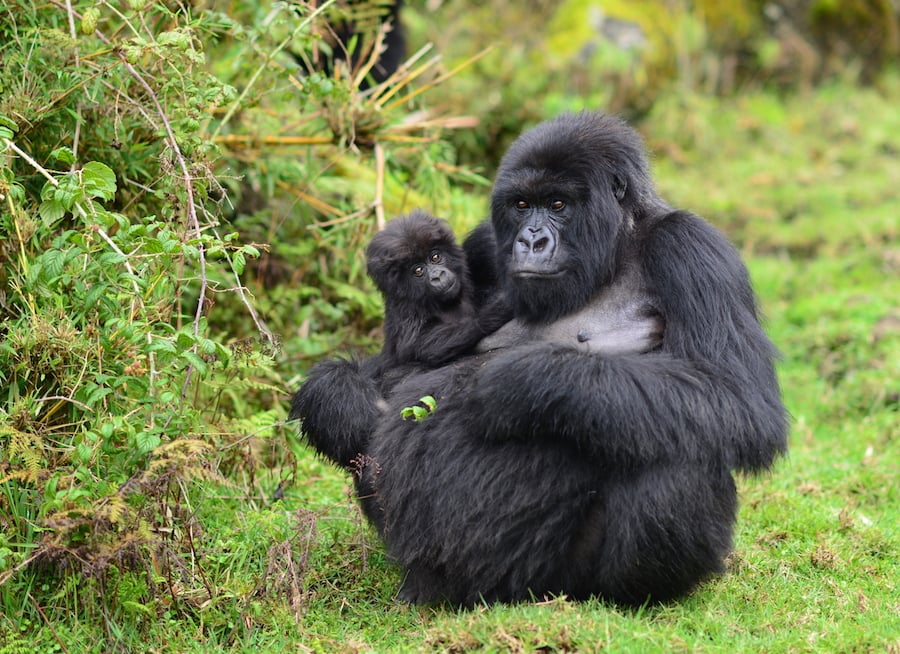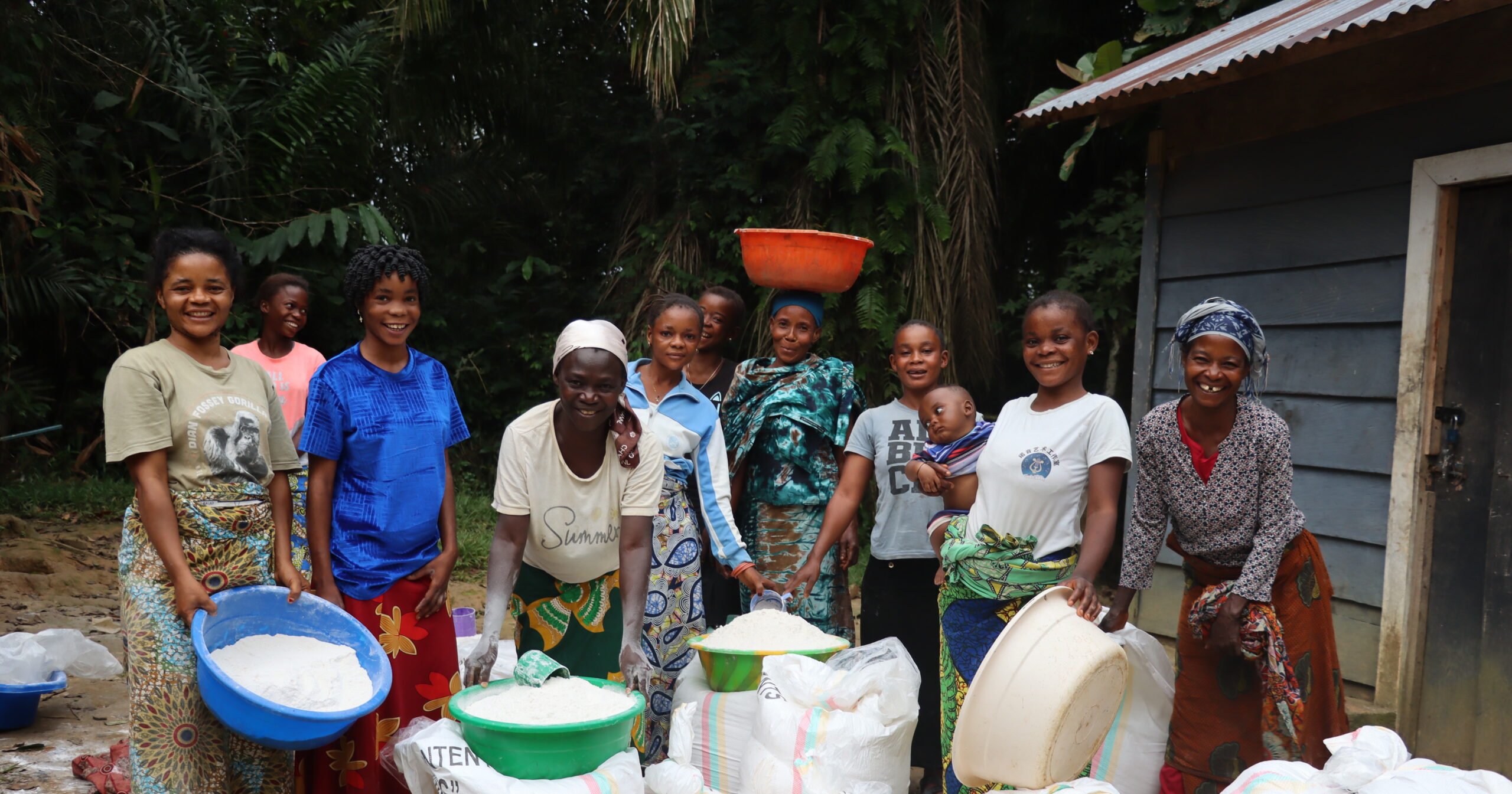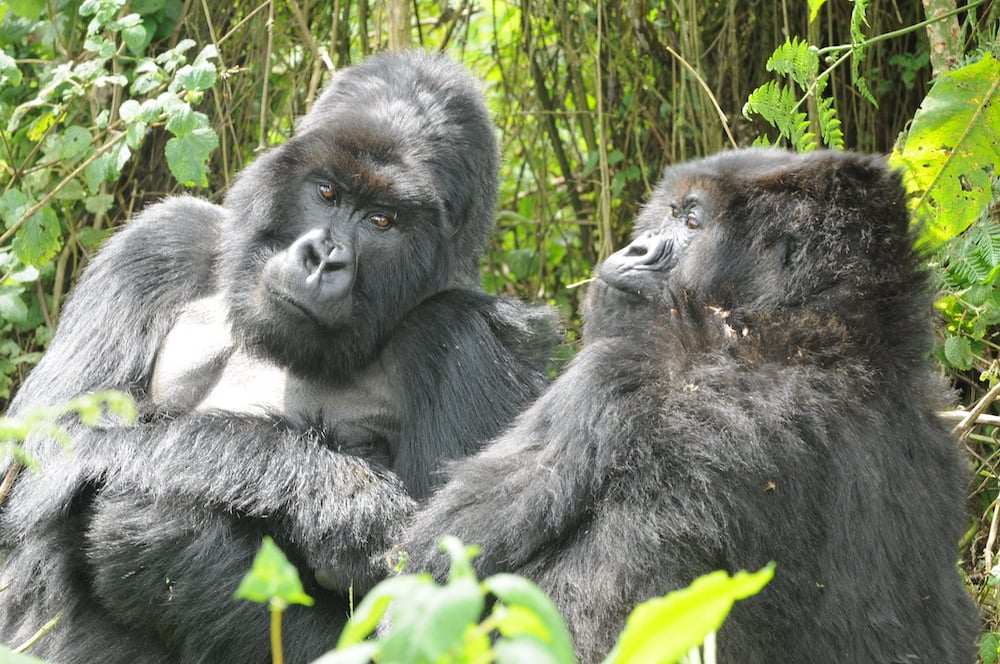July 2004
Gorilla Births; New Lone Silverback; Staff News
Gorilla news
Recent months have been busy at Karisoke. We welcomed the birth of two new infants in Pablo's group: Mudakama had her third infant on May 18 and Ntobo her second on June 13. Both infants are healthy and strong. Bukima, a Beetsme group female, gave birth to her first infant on May 21, but unfortunately, he survived only a few days. We hope for better luck for Bukima in the future.
In other gorilla news, Gwiza, a former Shinda group silverback who left with two females in April, is now a lone silverback. Gwiza lost his newly acquired group to Charles, the dominant silverback in Amahoro Group B, a group regularly monitored by the Rwandan Office of Tourism and National Parks (ORTPN). We hope to be able to continue tracking Gwiza's movements periodically through special teams of trackers. Amahoro, another Shinda group silverback, continues his periodic forays away from the group. His latest disappearance lasted 15 days, but on the morning of May 25, he was back with Shinda as usual.
This was also the date of an extended interaction between groups Beetsme and Shinda. The interaction was extremely peaceful, and continued into the morning of the 26th. The two groups moved less than 50 meters apart for much of the day, with many of the juveniles and young adult males periodically mixing. Two females, Inziza from group Beetsme, and Kurudi from group Shinda, both attempted to transfer to the opposite group during the interaction. Both were prevented from doing so by the silverbacks Shinda and Kuryama.
People news
The entire Karisoke staff would like to recognize Nubaha Jonas, a member of the anti-poaching team, for 25 years of service. Nubaha was hired in 1979 by Dian Fossey, and has been an important member of the team ever since. He is very proud of his role in helping to protect and preserve Volcanoes National Park, where the mountain gorillas live. He loves working with the gorillas, especially with Shinda's group and all its silverbacks. Nubaha is the father of six children, all of whom are currently in school. We thank him for all of his hard work and commitment over the last 25 years, and look forward to many more.
Karisoke welcomes a new member of the research team, Sarah Schaefer, from Rutgers University in New Jersey. She is a graduate student working with Dr. Dieter Steklis, Dian Fossey Gorilla Fund's vice president and chief scientist. Her experience includes a master's degree from Purdue University, where she studied seasonal food availability for western lowland gorillas at Bai Hokou in the Central African Republic. Sarah is here for a month-long visit to gather preliminary data and ideas, in preparation for beginning her dissertation research in the fall of 2005. She plans to investigate the significance of gorilla calls (sounds used for communication) used within Karisoke's groups (as opposed to between-group communication), using digital recordings, behavioral observations, and playback studies of the gorilla's calls. Dr. Steklis and Netzin Steklis, DFGFI's director of scientific information resources, are with Sarah at Karisoke this month.However, perhaps because of the numerous recent interactions with lone silverbacks, Titus decided it was wise to move his group away from their usual core range area, resulting in difficulties for the researchers, since they were so far away and it was a very lengthy journey to reach them.
The Karisoke Research Center is a program of the Dian Fossey Gorilla Fund International and serves as the base for our mountain gorilla protection, monitoring and conservation activities in Rwanda. From Karisoke, we monitor three gorilla groups in Rwanda's Parc National des Volcans: Beetsme's group, Pablo's group and Shinda's group, each named after the dominant (or once-dominant) silverback leader of the group.






